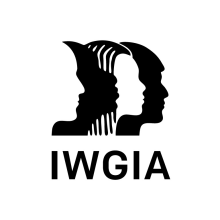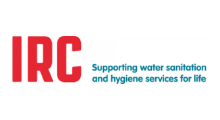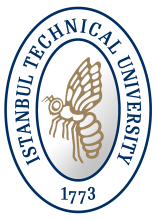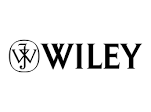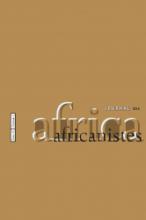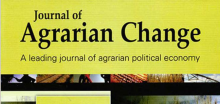The Land Library includes resources from more than 1,900 national and international information providers. Learn more about the organizations and institutions using the Land Portal to share their open-access research, data and stories.
International Work Group for Indigenous Affairs (IWGIA)
IWGIA is a non-governmental human rights organisation promoting and defending Indigenous Peoples’ collective and individual rights.
We have supported our partners in this fight for more than 50 years.
We work through a global network of Indigenous Peoples’ organisations and international human rights bodies.
We promote recognition, respect and implementation of Indigenous Peoples’ rights, including the right to self-determination by virtue of which they can freely determine their political status and freely pursue their economic, social and cultural development.
Visit our website for more information and to access all our publications, including our flagship annual book The Indigenous World, a yearly overview of the state of the rights of Indigenous Peoples across individual countries and through various international mechanisms and processes.
Investor Alliance for Human Rights
The Investor Alliance for Human Rights is a collective action platform for responsible investment that is grounded in respect for people's fundamental rights. We are a membership-based, non-profit initiative focusing on the investor responsibility to respect human rights, corporate engagements that drive responsible business conduct, and standard-setting activities that push for robust business and human rights policies.
Our membership is currently comprised of over 160 institutional investors, including asset management firms, trade union funds, public pension funds, foundations, endowments, faith-based organizations, and family funds. Our members currently represent a total of over US$5 trillion in assets under management and 18 countries.
Along with civil society allies, our team equips the investment community with expertise and opportunities to put the investor responsibility to respect human rights into practice. We do this by:
-
Providing practical tools for implementation of responsible business standards at each step of the investment lifecycle;
-
Supporting direct engagement with portfolio companies on their own human rights practices; and
-
Coordinating actions that ask policy makers and standard-setting bodies to create level playing fields for responsible business.
IOP Publishing
IOP Publishing is a wholly owned subsidiary of the Institute of Physics. The Institute is a leading scientific society promoting physics and bringing physicists together for the benefit of all. It has a worldwide membership of around 50,000 comprising physicists from all sectors. It works to advance physics research, application and education, and engages with policy makers and the public to develop awareness and understanding of physics. Any profits generated by the publishing company are used by the Institute to support science and scientists in both the developed and developing world.
IOP Publishing provides a range of journals, ebooks, magazines, conference proceedings and websites for the scientific community. These products and services enable researchers and research organisations to reach the widest possible audience for their research. We combine the culture of a learned society with global reach and highly efficient and effective publishing systems and processes. With offices in the UK, US, China and Japan, and staff in many other locations including Mexico and Sydney, we serve researchers in the physical and related sciences in all parts of the world.
IPIECA
IPIECA develops, shares and promotes good practice and knowledge to help the industry and improve its environmental and social performance. We do this with the understanding that the issues that dominate the sustainable development agenda – climate and energy, environmental and social issues – are too big for individual companies to tackle alone. The industry must work together to achieve improvements that have real impact. IPIECA helps to achieve this goal.
IPIECA is a not for profit association that provides a forum for encouraging continuous improvement in industry performance. IPIECA is the only global association involving both the upstream and downstream oil and gas industry. It is also the industry’s principal channel of communication with the United Nations.
IPPG Programme
The IPPG Programme is the shorthand name for the inter-disciplinary Research Programme Consortium on Improving Institutions for Pro-Poor Growth. The DFID-funded IPPG supports innovative scholarly research, and seeks to influence development policy and practice that contributes to the UN Millennium Development Goals (MDGs). IPPG supports innovative scholarly research, and seeks to influence development policy and practice that contributes to achievement of the MDGs. Our inspiration comes from:
- The recognition that 'institutions' are best understood as relatively stable social and political arrangements, which include informal norms and conventions as well as formal rules and laws.
- Critically, however, we go well beyond the widely accepted view that 'institutions matter'. We explore and illustrate the consortium's 'big idea' that political and social institutions and practices – both formal and informal – have a profound effect on the form and functioning of economic institutions and hence influence growth outcomes decisively.
- It follows that while economic growth is a necessary condition for the sustainable reduction of poverty, it is not enough. If the MDGs are to be accomplished, we must think of ways in which growth can be made distinctly pro-poor and political processes will enhance and not hinder appropriate institutional development.
IPPG Programme partners are based in South Asia, Sub-Saharan Africa and Latin America.
IRC International Water and Sanitation Centre
We are a 'think and do tank'. We're working with national and local governments, with NGOs and businesses, and with local communities to realise an ambitious vision: a world where no child or adult dies of causes related to water and sanitation. A world where everyone has access to safe and reliable WASH services, forever.
'IRC' comes from International Reference Centre for Community Water Supply, which was our name from the founding of the organisation in 1968 (by the World Health Organization and Dutch government) to mid-1980s, when it changed into IRC International Water and Sanitation Centre. Since 2014 we are known as IRC, no acronym, just our name in capital letters. Occasionally with the additional strapline: supporting water sanitation and hygiene services for life.
IRIN
IRIN (formerly Integrated Regional Information Networks) is a news agency focusing on humanitarian stories in regions that are often forgotten, under-reported, misunderstood or ignored.
Until 1 January 2015, IRIN was a project of the United Nations Office for the Coordination of Humanitarian Affairs (OCHA). IRIN aims to create greater awareness and understanding of regional issues and events, and to contribute to better-informed and more effective humanitarian action, media coverage and advocacy.
The news service is widely used by the humanitarian aid community, as well as academics and researchers.
Island Press
Island Press is a nonprofit, environmental publisher based in Washington, D.C., United States, that specializes in natural history, ecology, conservation, and the built environment. Established in 1984, Island Press generates about half of its revenue through sales and half through donations by organizations and individuals.
ISPRS International Journal of Geo-Information
ISPRS International Journal of Geo-Information (ISSN 2220-9964) is an international, open access journal on geo-information.
It is a journal of the ISPRS (International Society for Photogrammetry and Remote Sensing) and is published monthly online by MDPI.
Istanbul Technical University
Istanbul Technical University is one of the world’s oldest technical universities with a long history of 250 years.
ITU is a reputable institution known for its history, science, technology, art and sport achievements over the period of 242 years. It is a research centre connecting the past to the present and designing projects for the future. ITU, that has presented numerous scientific and technological developments, was the first to introduce novelties and unique achievements, provides academic learning being one of the oldest and most prominent technical universities in the world.
ITU offers 39 graduate programs at 13 faculties, 39 postgraduate and doctoral programs at 6 institutes on five different campuses, all of them located in the heart of Istanbul.
Italian Society of Silviculture and Forest Ecology
The Italian Society of Silviculture and Forest Ecology (Italian: Società Italiana di Selvicoltura ed Ecologia Forestale, or SISEF), established in 1995, is a non-profit cultural association promoting the diffusion of scientific forest culture in Italy, and all over the world.
Mission
SISEF mission is to promote researches on:
- structure, functionality and sustainable management of forest ecosystems
- forest habitat, forest biodiversity and genetics
- dendro-ecology, silviculture, wood production and technology, forest harvesting
- landscape, forest ecosystem services
SISEF aims also to promote
- Coordination, strengthening and networking of forest research
- Forest education
SISEF supports communication among its members interested in studying forest science and forestry issues, covering all aspects of an interdisciplinary science, including biology, ecology, silviculture, wood production, climate change, environmental and socio-economy aspects.
SISEF is accredited by ANVUR, the Italian National Agency for the evaluation of Universities and Research Institutes; and is a member of AISSA, the Italian Association of Scientific Agriculture Societies.
SISEF's headquarters is in Viterbo, Italy, at the Department for Innovation in Biological, Agro-Food and Forest Systems, of Tuscia University.
JamalBrowne.com
International Development Expert, writer, and motivational speaker Dr. Jamal Browne, continues to establish himself as an outstanding young leader within the Caribbean region and across The Americas.
At just 31 years old, his professional and academic accomplishments are testimony to his progressive outlook on life, while his civic engagements and keen sense of social responsibility reflect his commitment to improving the human condition, while inspiring others to do the same.
“True fulfillment is the product of every effort and sacrifice required to bring us into the fullness of God’s divine plan for our lives.” – Jamal Browne
Academic & Professional Achievements
In 2008, he received his Bachelors Degree (Hons) in Surveying and Land Information from The University of the West Indies in Trinidad & Tobago, and immediately thereafter joined the public service in his native Saint Vincent and the Grenadines.
In 2011, he returned to the University of the West Indies to pursue a Master of Philosophy (M.Phil), with a focus on Land Tenure Security and Disaster Risk Reduction.
In February 2014, he successfully upgraded to Doctor of Philosophy (PhD).
In June 2014, he joined the United Nations Human Settlements Programme (UN-Habitat) as a Consultant Project Officer at the agency’s headquarters in Nairobi, Kenya; and in January 2015, was among the first cohort of scholars of the Canadian Government-funded EKACDM Scholarship.
In June 2015, he launched Land and Property Network – a Caribbean-based start-up within the global land and property sector, that works with governments, international development and civil society organizations, and the private sector in addressing land administration and land governance issues.
He is an alumnus of President Barack Obama’s Young Leaders of the Americas Initiative (YLAI) – having served as a Professional Fellow in the initiative’s inaugural cohort (2016).
On November 17, 2016, Dr. Browne successfully defended his doctoral research at the University of the West Indies, St. Augustine Campus in Trinidad and Tobago.
Motivational Speaking
Having shown great interest in the art of public speaking from a very early age, Jamal has spent most of his life developing this skill.
He however considers public speaking as his prized platform for sharing messages of hope with audiences that are more likely to respond to the spoken word.
Over the years, he has served as keynote speaker at numerous graduation and prize giving ceremonies, and has chaired international forums on Land & Property Rights.
He has also made presentations before audiences at The World Bank, United Nations, and numerous international and regional conferences.
“Reality will hit us with such a forceful punch if we ever for a moment believe that qualifications and accolades are standalone conditions for success.” – Jamal Browne
Writing & New Media
Jamal is an avid writer and blogger, and is currently working on his first major publication – set to be released in 2017. While his proficiency as a writer has been refined through years of formal tuition, a keen eye for detail, and an acutely creative mind, his exposure to courses in Journalism, Film Production, and Broadcasting has brought life to a hidden flair for new media.
Japan International Cooperation Agency
The Japan International Cooperation Agency (JICA) is advancing its activities around the pillars of a field-oriented approach, human security, and enhanced effectiveness, efficiency, and speed.
Vision
"Inclusive development" represents an approach to development that encourages all people to recognize the development issues they themselves face, participate in addressing them, and enjoy the fruits of such endeavors. The role of New JICA is to effectively provide backing for this process.
"Dynamic development" refers to the creation of self-reinforcing virtuous cycles of mid- to long-term economic growth and poverty reduction in a constantly changing environment of developing countries where a variety of issues arise simultaneously and get entangled each other. New JICA will provide creative, highly effective support toward this end, at times moving swiftly and at times acting from the longer-term perspective as the situation calls for.
Mission 1
Addressing the global agenda
The advance of globalization brings positive effects, sparking economic development and providing people with new opportunities. It also has its negative side, though, including such effects as uneven wealth distribution and the cross-border issues of climate change, infectious diseases, terrorism, and expanding economic crises. These effects pose a threat to the stability and prosperity of Japan—which depends on resources from around the world—and the rest of the international community. The threat is particularly dire for developing countries. New JICA will make full use of Japan's experience and technologies as it works in concert with international society to address the various globalization-related issues developing countries face in a comprehensive manner.
Mission 2
Reducing poverty through equitable growth
Impoverished people in developing countries are particularly susceptible to the effects of economic crisis, conflict, and disaster and are constantly exposed to the risk of even deeper poverty. Moreover, growing wealth gaps are a destabilizing factor in societies. Helping people to escape poverty and lead healthy, civilized lives is a vital task not only for the growth of developing countries but also for the stability of the international community. To reduce poverty, employment opportunities must be expanded through equitable growth that gives proper consideration to impoverished members of society, and public services like education and healthcare must be enhanced. New JICA will provide support for human resources development, capacity building, policy and institutional improvements, and provision of social and economic infrastructure, thereby pursuing sustained poverty reduction through equitable growth.
Mission 3
Improving governance
A state's capacity for governance refers to its status as a society that can take the resources available to it and direct, apportion, and manage them efficiently and in ways that reflect the will of the people. Improving governance is of vital importance to the stable economic growth of developing countries. However, these states often have underdeveloped legal and judicial systems and administrative organs, which present obstacles to efforts to reduce poverty through economic growth. New JICA will offer support aimed at improving the fundamental systems needed by a state, as well as systems for effectively providing public services based on the needs of people, and at fostering the institutions and human resources needed to manage those systems appropriately.
Mission 4
Achieving human security
The advance of globalization causes an increase in various cross-border dangers and exposes many people in developing countries to civil strife, disasters, poverty, and other humanitarian threats. The concept of human security places individual human beings at its core, seeking to defend them from fear and want: fear of things like conflict, terrorism, disaster, environmental destruction, and infectious disease, and want in the face of poverty and in social services and infrastructure. By building up people's abilities to address these issues themselves, this approach aims to build societies in which they can live with dignity. In order to defend the weakest members of society from these various threats, New JICA will support efforts to bolster social and institutional capacity and to increase people's ability to deal with threats themselves.
Japan International Research Center for Agricultural Sciences
The Japan International Research Center for Agricultural Sciences(JIRCAS) was established in October 1993, through the reorganization of its predecessor, the Tropical Agriculture Research Center (TARC), in order to include overseas forestry and fisheries research in its mandate. It was again restructured in April, 2001 as an Incorporated Administrative Agency under the Ministry of Agriculture, Forestry and Fisheries (MAFF).
Jasil
JASIL’s Program Aim is to support for community based pro-poor policies and facilitate the empowerment of communities and its Associations. JASIL has been involved in the Sustainable Management of Common natural resources in Mongolia since 2003, and Collaborative Learning for the Co-management of natural resources in Mongolia, since 2007, working closely with the Ministry of Nature and the Environment, Ministry of food and agriculture. JASIl participated in the development and the formulation of Land Law (2002), Law on “Reinvestment of Natural Resource Use Fee for the Protection of the Environment and the Restoration of Natural Resources” (2000), Ammendment to Environment Protection law on Community (2005), Forest Law (2007) and the sub-law on Community Based Natural Resources Management (2006) , National “Green Wall program” (2005) and currently working on the implementation of these policy documents and approval of Draft Pasture Law (2011) of the grassland reform in Mongolia.
Jersey Legal Information Board
The Jersey Legal Information Board supports and participates in the free access to law movement.
The Vision
For Jersey’s legal system to be, and be recognised as, the global best for a small jurisdiction.
The Strategy
The Jersey Legal Information Board (JLIB) has created a strategy setting the direction of Jersey's Legal Information Systems for the next five years. In order to achieve its vision, the approach of the Board is a progressive and forward-looking one, exploiting emerging technologies. However, the Board will be sensitive to the way in which Jersey's legal processes have developed in the light of the Island's unique historical and social status.
Elements of the Strategy:
· To make the law and legal processes more accessible
· To promote the better co-ordination of Jersey’s justice system
· To support Jersey's position as a leading business centre
Jimma University
imma University (JU) is a public research university located in Jimma, Ethiopia. It is recognized as the leading national university, as ranked first by the Federal Ministry of Education for four successive years (2009 - 2012).
The establishment of Jimma university dates back to 1952 when Jimma college of Agriculture was founded. The university got its current name in December 1999 following the amalgamation of Jimma College of Agriculture (founded in 1952) and Jimma Institute of Health Sciences (founded in 1983).
Currently the university has two campuses; the college of agriculture campus which is located next to downtown Jimma and the main campus located in the suburb of the town. Both campuses are wooded and are just like urban parks that host a plethora of wild life.
Source: Wikipedia (d.d. November 9th 2017).
JLL
We’re here to create rewarding opportunities and amazing spaces around the globe where people can achieve their ambitions. In doing so, we are building a better tomorrow for our clients, our people and our communities.
We’re a world leader in real estate services, powered by an entrepreneurial spirit. We want the most ambitious clients to work with us, and the most ambitious people to work for us. It’s as simple as that.
We buy, build, occupy and invest in a variety of assets including industrial, commercial, retail, residential and hotel real estate. From tech startups to global firms, our clients span industries including banking, energy, healthcare, law, life sciences, manufacturing and technology.
John Wiley & Sons, Inc.
Wiley's Global Research business is a provider of content-enabled solutions to improve outcomes in research, education and professional practice with online tools, journals, books, databases, reference works and laboratory protocols. With strengths in every major academic, scientific and professional field, and strong brands including Wiley Blackwell and Wiley VCH, Wiley proudly partners with over 800 prestigious societies representing two million members. Through Wiley Online Library, we provide online access to a broad range of content: over 4 million articles from 1,500 journals, 9,000+ books, and many reference works and databases. Access to abstracts and searching is free, full content is accessible through licensing agreements, and large portions of the content are provided free or at nominal cost to nations in the developing world through partnerships with organizations such as HINARI, AGORA, and OARE.
Wiley's Professional Development business creates products and services that help customers become more effective in the workplace and achieve career success. It brings to life the ideas and best practices of thought leaders in business, finance, accounting, workplace learning, management, leadership, technology, behavioral health, engineering/architecture, and education to serve these communities worldwide.
Wiley Global Education serves undergraduate, graduate, and advanced placement students, lifelong learners, and, in Australia, secondary school students. We publish educational materials in all media, notably through WileyPLUS, our integrated online suite of teaching and learning resources. Our programs target the sciences, engineering, computer science, mathematics, business and accounting, statistics, geography, hospitality and the culinary arts, education, psychology, and modern languages.
Joint Research Centre European Commission
The Joint Research Centre is the European Commission's science and knowledge service which employs scientists to carry out research in order to provide independent scientific advice and support to EU policy.
Journal des africanistes
Le Journal de la Société des africanistes, devenu Journal des Africanistes en 1976, est publié régulièrement depuis 1931 au rythme habituel de deux fascicules par an. On y retrouve des articles de spécialistes (ethnologues, archéologues, préhistoriens, linguistes, etc.), des dossiers thématiques, des comptes rendus et diverses informations scientifiques. Le journal des Africanistes constitue de ce fait un instrument de recherche précieux pour les chercheurs et les documentalistes.
La majorité des numéros parus depuis 1931 ont été numérisés et sont disponibles en ligne. À partir de 2004, les numéros sont consultables sur le site www.revues.org avec une barrière mobile de quatre ans sur les articles.
Le dernier numéro paru, mais aussi les autres, peuvent être achetés en s’adressant à africanistes@yahoo.fr
In 1976, the Journal de la société des africanistes, which had published regularly from 1931 onwards, became the Journal des africanistes, and has kept up the same regular rate of two issues per year. The journal contains articles by specialists (ethnologists, archaeologists, pre-historians, and linguists, etc), thematic issues, reviews and other academic information. The Journal des africanistes is a valuable reference tool for researchers and archivists.
The majority of issues published since 1931 have been digitized and are available online. Issues from 2004 are available at www.revues.org with a four-year moving barrier on the articles.
Journal for the Anthropology of North America
Journal for the Anthropology of North America (JANA) – formerly North American Dialogue – is the peer-reviewed publication of the Society for the Anthropology of North America. We publish research that fosters dialogue about North America and its far-reaching effects. JANA is a forum for North Americanist scholars, activists, and practitioners to disclose findings, raise issues, describe fieldwork, and offer political and theoretical analyses in a timely fashion.
Journal of Administrative Science
The Journal of Administrative Science (JAS) is an international, interdisciplinary journal aims to prompt discussion, sharing and debate on topical issues of particular interest or concern in the developed and developing world. It deliberates the theoretical and empirical articles that incorporate with the administrative science issues from interrelated disciplinary standpoints. The journal welcomes contributions from scholars from the humanities and social sciences with a research interest in the developed and developing world. The journal is published by the Faculty of Administrative Science & Policy Studies (FASPS), Universiti Teknologi MARA (UiTM) Shah Alam. This dynamic field is focused at the center of such contemporary public policy debates as the future of federal public policy, the privatisation of public services, the changing role of public sector management in the achievement of organisational goals and objectives.
JAS is a double-blind peer-reviewed; both reviewers and authors’ identities remain anonymous journal. It will produce regular issues twice a year as an open-access e-journal. It is a non-profit journal which aims to provide a venue for academics, educators and researchers to share the findings of their research. Manuscripts may outline experience, both national and international, in dealing with a particular issue. Or they may be more empirical in nature, prompting the development of new ideas on public management issues. The manuscripts are not intended to set out an official position on the topic under scrutiny. Rather, the intention is to identify current thinking and best practice. The journal intends to provide a service to people working in public organisations by enhancing the knowledge base on public management issues. Research into the problems, solutions and successes of public management processes, and the way organisations can best adapt in a changing environment have much to contribute to good management and are a vital element in the public service renewal process.
A manuscript submitted to the Editorial Board for consideration must be an original unpublished work, not under consideration for publication elsewhere.
Journal of African Economies
The Journal of African Economies is a vehicle to carry rigorous economic analysis, focused entirely on Africa, for Africans and anyone interested in the continent - be they consultants, policymakers, academics, traders, financiers, development agents or aid workers.
Journal of Agrarian Change
The Journal of Agrarian Change is a peer-reviewed academic journal established in 2001 covering agrarian political economy. The journal publishes historical and contemporary studies of the social relations and dynamics of production, power relations in agrarian formations and ownership structures and their processes of change.
Source: Wikipedia
Journal of Architecture and Planning
The Architectural Institute of Japan’s Journal of Architecture and Planning aim to pursue theories for building and maintaining pieces of architecture as well as the cities or areas surrounding them, and to accumulate and systematize the knowledge needed to put those theories into practice. The Journal of Architecture and Planning focuses on research results in the areas of “architectural planning and design,” “urban planning and design,” “rural planning and design,” “architectural system and management,” and “history and theory of architecture.” Accordingly, it compiles articles in the following areas, disseminates relevant information, and hosts discussions:
・Housing and facility planning
・Fundamental theories in planning and design
・Building construction planning
・Urban planning and design
・Integrated urban development master plan
・Living environments and community
・Rural planning and design
・Housing and architecture management
・History and theory of architecture
・Urban history
・Conservation (theory, technique, archive)
This journal shares research articles by members of the (general incorporated association) Architectural Institute of Japan, with a reading audience both in Japan and abroad.
Journal of Bangladesh Institute of Planners
The Journal of Bangladesh Institute of Planners (JBIP) is an effort of BIP to give a platform to the professionals, academicians, researches and students to reflect their current analytical and critical thinking concerning the planning issues in and around the world. The issues and contexts of planning broaden from local to global. The aim of this journal is to address all of the issues and contexts aiming to the following objectives:
- bridging the gaps between planning practice, research and education
- the critical evaluation of planning practice and the progressive search for practical guidance
- presenting research in an accessible, laconic style, not overly theoretical, but analytical
Journal of BIP (JBIP) will fulfil these objectives by publishing quality research in a variety of specific fields and from a range of theoretical and normative perspectives, which helps improve understanding of the actual and potential role of planning and planners in different context.
Specific field of areas covered include:
- Land use planning and urban design
- Economic development and planning
- Environmental policy and planning
- Spatial planning
- Housing and community development
- Transportation policy and planning
- Urban, social and public policy
- Urban governance
- Regional and Rural planning
- Development Planning
- Application of GIS and remote sensing in planning
- Tourism Planning
- Natural resource planning and Disaster Management
Journal of Bhutan Studies
The Journal of Bhutan Studies (ISSN 1608-411X) is a twice-yearly publication of the Centre for Bhutan Studies, an autonomous research institute dedicated towards promoting research and scholarship on Bhutan. The institute is governed by the Council for the Centre of Bhutan Studies. The journal publishes scholarly research on the social, cultural and economic aspects of Bhutan. While Internet edition of the Journal can be accessed through the Centre's own website, the Digital Himalaya Project has reached an agreement with the Centre to co-host the journal to improve download speeds for scholars based in Europe and North America, and also to archive the contents on our searchable portal pages. The journal welcomes the submission of articles and research papers in English. Articles should be typed and double spaced and sent by email to the editor at: cbs@bhutanstudies.org.bt. On account of the compression format we have used for the PDF files, we advise that you install the most recent version of Adobe Acrobat which can be downloaded by clicking here. Please send us a short email to say whether this service is of interest and utility to you. Feedback will determine whether we proceed with the digitisation of further volumes.

